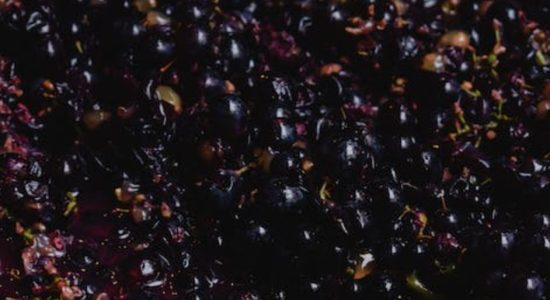How Long Before Homemade Wine Is Drinkable? (4 Facts)

If you’re making your own wine, you’re probably eager to try it before it’s completely ready. However, winemaking takes a long time, and it’s important to wait the appropriate amount of time before drinking.
Homemade wine is drinkable about 1-4 months after you start the winemaking process. The wait depends on the kind of wine you’re making, how clear it is, and its specific gravity value.
Let’s take a closer look at what factors need to be considered when determining whether a homemade wine is drinkable.
Things To Know Before Drinking Homemade Wine
When you’re making homemade wine, you probably want to taste it as soon as possible to see how well you did. Unfortunately, winemaking can be quite a lengthy process, so you won’t get the instant gratification that you may desire.
The good news is that your homemade wine will be drinkable after some time. Here are some things to keep in mind.
1. Wine Should Have No More Sediment Before It Goes Into the Bottle
When you buy wine in the store, it’s already clear and without sediment, but it doesn’t start out that way. So you’re probably a bit shocked to find sediment in your wine. However, you need to give the wine enough time, it will clear itself by dropping sediment to the bottom of the fermenter.
This sediment is mostly tiny yeast cells.
If you want to speed up this process, you can use bentonite, which is a fining agent that removes negatively-charged particles. This clears up the wine quickly and enables you to get the wine in bottles quicker.
2. Your Wine Should Be Less Than .998 on the Specific Gravity Scale
Another thing you have to be aware of before even putting your homemade wine in the bottle is its specific gravity.
The specific gravity scale measures the ratio of a liquid’s density to the density of water. You can measure specific gravity using a hydrometer, and the value indicates whether the fermentation process is finished or not.
If the value is less than .998, the wine is ready for bottling.
Check the specific gravity regularly throughout the fermentation process to determine whether you need to add more sugar to increase the alcohol level or not. Knowing this value also helps you know if your wine is progressing or if perhaps you’ve done something wrong and the fermentation isn’t continuing as it’s meant to.
My favorite hydrometer is this Triple Scale Hydrometer from Amazon.com, which is extremely accurate and easy to use. I also like that it doesn’t contain any mercury, lead, or other hazardous compounds, so you can check your wine without worrying about adding any toxic material to the brew.
The following video explains what specific gravity is and why it’s important:
3. Homemade Wine Needs To Spend Time in the Bottle Before Drinking
You may think that you just need to wait for the fermentation process to be completed, and then you’ll be able to drink your wine, but this isn’t true. Your wine will taste better if you let it sit in the bottle for a while, as it will increase its flavors and distinctions.
Wine tastes better with age because more time allows for reactions to occur among sugars, acids, and phenolic compounds.
When wines age, more flavors begin to emerge as the acids and alcohols react with each other to form new compounds, which can then dissolve and rearrange to form another set of new compounds. Whenever you open a bottle of wine, it’s in a distinct reaction stage, which means it will have a unique taste.
Allowing wine to rest in the bottle also helps develop its texture.
In freshly made wines, the tannins, which are phenolic compounds, repel each other and therefore remain suspended in the wine. However, the older they get, the more they lose their charge and start to combine with each other instead of repelling.
They form large and heavy chains as they combine, which reduces their surface area. This causes them to taste smoother. For this reason, red wine often tastes smoother if it has been aging in a bottle for some time.
By allowing your homemade wine to spend time in the bottle before you drink it, you’re allowing your wine to reveal its true nature and reveal complex and unique tertiary notes. This makes for a better and individualized drinking experience for you and all who are lucky enough to snag a taste of your wine.
4. Wait Time Depends on the Kind of Wine You’re Making
Some types of wine benefit more from aging than others. All wines benefit from at least some time to settle in the bottle, but some white wines don’t have a firm structure, so they don’t benefit from extended aging.
Therefore, the waiting period for the aging process depends on what kind of wine you’re making.
The following chart outlines the potential aging window of different kinds of wines, but keep in mind that you certainly don’t have to wait this long to drink your homemade wine. Most homemade red wines taste good after six months of aging, and three months is sufficient for most white wines.
| Wine | Color | Aging Potential |
| Port | Red | 2-10 years |
| Merlot | Red | 2-17 years |
| Malbec | Red | 3-12 years |
| Sangiovese | Red | 7-20 years |
| Cabernet Franc | Red | 5-12 years |
| Cabernet Sauvignon | Red | 5-12 years |
| Zinfandel | Red | 2-5 years |
| Pinot Noir | Red | 1-4 years |
| Chardonnay | White | 1-5 years |
| Riesling | White | 0-3 years |
| Viognier | White | 1-5 years |
If you have the patience to wait years before trying your homemade wine, you may be surprised by the unique and complex flavors that emerge and reward you for your patience.
Final Thoughts
If you’re patient and give your homemade wine enough time to develop a strong and distinct flavor profile during the aging process, clear itself of all sediment, and reach an acceptable level on the specific gravity scale, your homemade wine is likely to taste how you want it to. Therefore, winemaking may require a little more patience than you were expecting.







